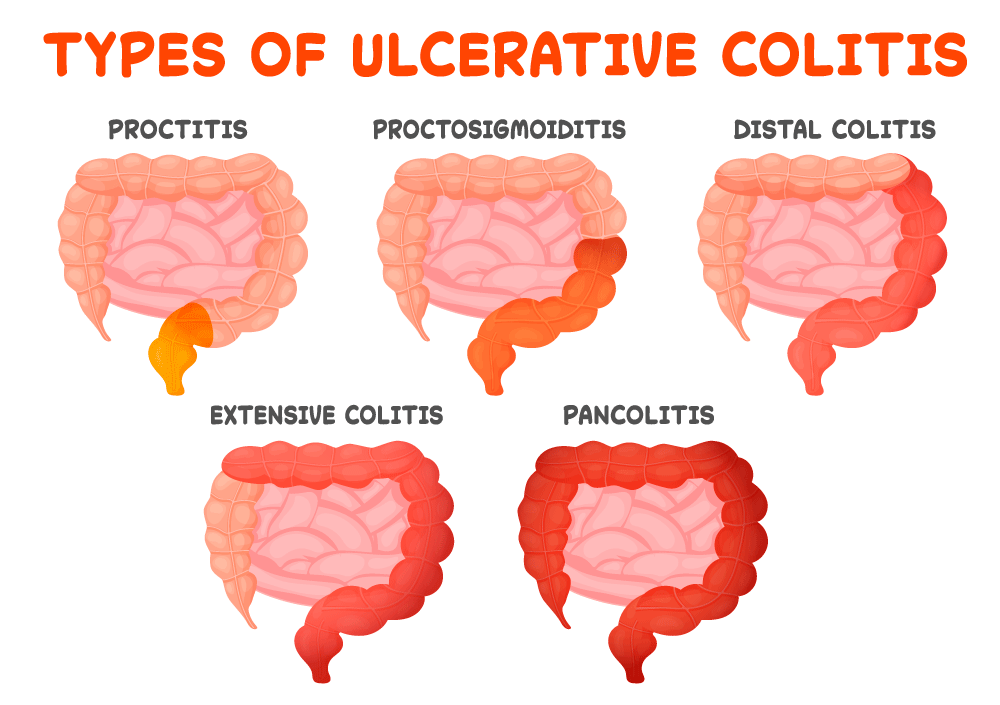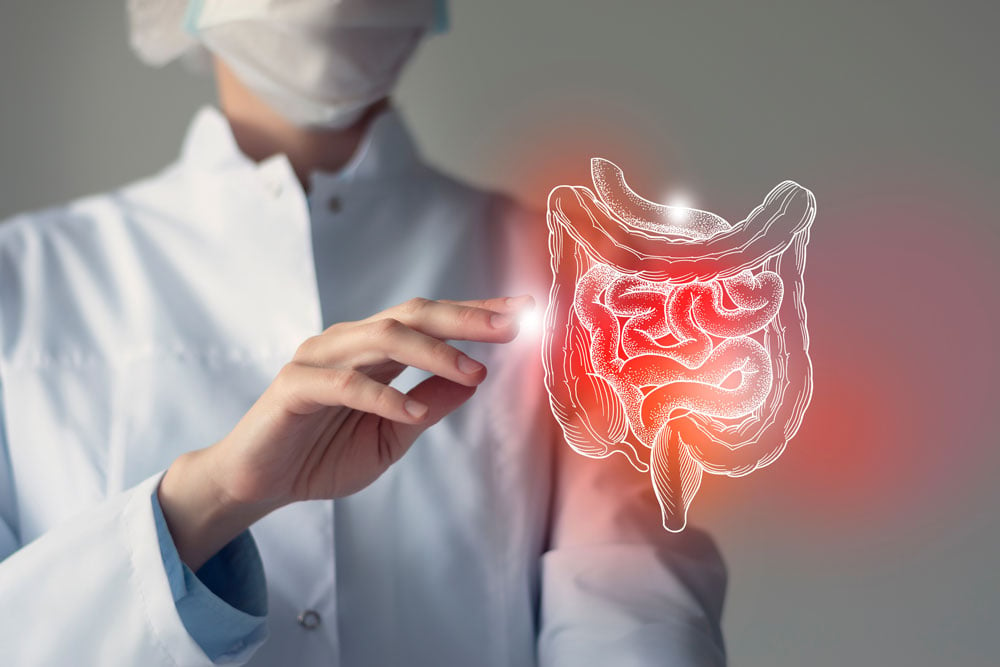Ulcerative Colitis at Gastroenterology Clinic DRHC Dubai
Ulcerative colitis (UC) is a chronic inflammatory state of the colon that causes irritation and ulcers (open sores) in the large intestine. It is a subgroup of inflammatory bowel disease (IBD). It usually occurs with bloody diarrhea, abdominal cramps, and defecation urgency. Usually, it starts in the rectum, which is close to the anus area; however, it can spread and affect a big part of, or even the entire colon, with a fluctuating course.
If the inflammation is localized to the rectum and/or lower part of the colon, it is called Ulcerative Proctitis. If the entire large intestine is affected, it is called pancolitis.
How severe can it be?
The severity of Ulcerative colitis (UC) depends on the size and amount of inflammation, along with its location. Its severity varies from one patient to another, and its size is also variable; for instance, you could have severe inflammation that affects a small area like the rectum, or very mild inflammation in a large area like the entire colon.
Having a fluctuating course, patients can have a period of no symptoms (remission) or flare-ups (active disease), when symptoms are worse. The goal of treatment is to remain in remission as long as possible (years), as the ongoing inflammation will lead to organ damage.
Symptoms:
Almost half of the cases diagnosed with ulcerative colitis have mild symptoms, yet others may suffer frequent flare-ups with fever, bloody diarrhea, nausea, and abdominal pain. This chronic inflammatory state (Ulcerative colitis) may cause problems outside the digestive tract (EIM extra-intestinal manifestations) such as articular diseases, inflammation of the eye, liver disease, kidney disease, skin diseases, and osteoporosis.
It's not known for sure why these problems occur outside the colon, but many kinds of research have shown that these complications may occur due to an inflammation triggered by the immune system, yet some of these problems will resolve after treatment of the colonic inflammation. The symptoms include the following:
- Diarrhea or urgent bowel movements.
- Abdominal (belly) cramping.
- Tiredness
- Nausea
- Weight loss
- Anemia (reduced number of red blood cells).
- Blood, mucus, or pus in bowel movements.
- Severe cramping.
- Fever
- Skin rashes
- Mouth sores
- Joint pain.
- Red, painful eyes.
- Liver disease.
- Loss of fluids and nutrients.
- Delayed or poor growth in children
Who may have it?
This condition can occur at any age, but usually within 2 peaks in life, either between the ages of 15 to 30 or, to a lesser extent, between 50 and 70 years of age. It can affect men and women equally, and it also appears to run in families, as a report shows that up to 20% of people with ulcerative colitis have a family member or relative with the same disease or Crohn’s disease. Also, about 20% of patients are diagnosed before they reach the age of 20 years, and it can occur in children as young as two years of age.
Colitis and UC:
Many other problems can cause inflammation of the colon (colitis), such as infections from viruses or bacteria. However, UC is more severe because it is not caused by an infection and is lifelong. Fortunately, IBDs are not common but frequent. It can happen at any age, but with an increased chance if you:
- Have a close relative with inflammatory bowel disease (IBD).
- They are between 15 and 30 years old, or older than 60.
- Eat a high-fat diet.
- Use frequent nonsteroidal anti-inflammatory drugs (NSAIDs) like ibuprofen (Advil® or Motrin®).

Diagnosis:
It is always wise for the doctor to rule out any other illnesses that mimic UC. After a physical exam, the doctor may order:
Management and Treatment:
- Till now, there is no cure for ulcerative colitis, yet treatments are important to calm the inflammation and heal the ulcers.
- In the majority of cases, doctors manage the disease with medications. However, some cases might need surgery.
- The treatment aims to maintain remission as well as improve the quality of life for patients with ulcerative colitis.
Several treatments usually depend on the severity and the patient.
- Aminosalicylates: For mild to moderate ulcerative colitis
- Corticosteroids: If you have a severe form of ulcerative colitis, as a short-term treatment
- Immunomodulators can help calm the overactive immune system.
- Biologics treat moderate to severe ulcerative colitis by targeting parts of the immune system to quiet it down.
- Janus kinase (JAK) inhibitors: are used to stop one of the body’s enzymes from triggering inflammation.
- Children and young teenagers are prescribed the same medications
- Vitamin supplements may be needed
Surgery in specific cases that removes your colon and rectum to:
- Avoid medication side effects.
- Stop uncontrollable symptoms.
- Prevent or treat colon cancer (people with ulcerative colitis are at greater risk).
- Eliminate life-threatening complications such as bleeding.
Prevention:
Things that may cause a flare-up include:
- Emotional stress
- NSAID use
- Antibiotics
- Diet does not cause the development of ulcerative colitis, nor can any special diet cure the disease.
- Some foods may make symptoms worse and should be avoided
- Maintain adequate caloric intake and vitamins
- Take your medications as prescribed, even when you don’t have symptoms.
How often do check-ups:
- New onset of symptoms
- Frequent endoscopies (case by case). Every 1 to 2 years
- It can have a negative psychological effect, especially on children.
- Some medications used can cause immunosuppression that needs closer follow-up.
.png?width=281&height=59&name=bookanappointment%20(1).png)
If you are due for Ulcerative colitis or are experiencing gastrointestinal symptoms, don't delay. Contact DRHC Dubai to schedule your appointment. Our team of experts is here to provide you with compassionate care and personalized treatment to keep your digestive health in check. To book Your Appointment, just call us at +97142798200 for a consultation with the Gastroenterology Clinic at DRHC Dubai.





.png?width=281&height=59&name=bookanappointment%20(1).png)





